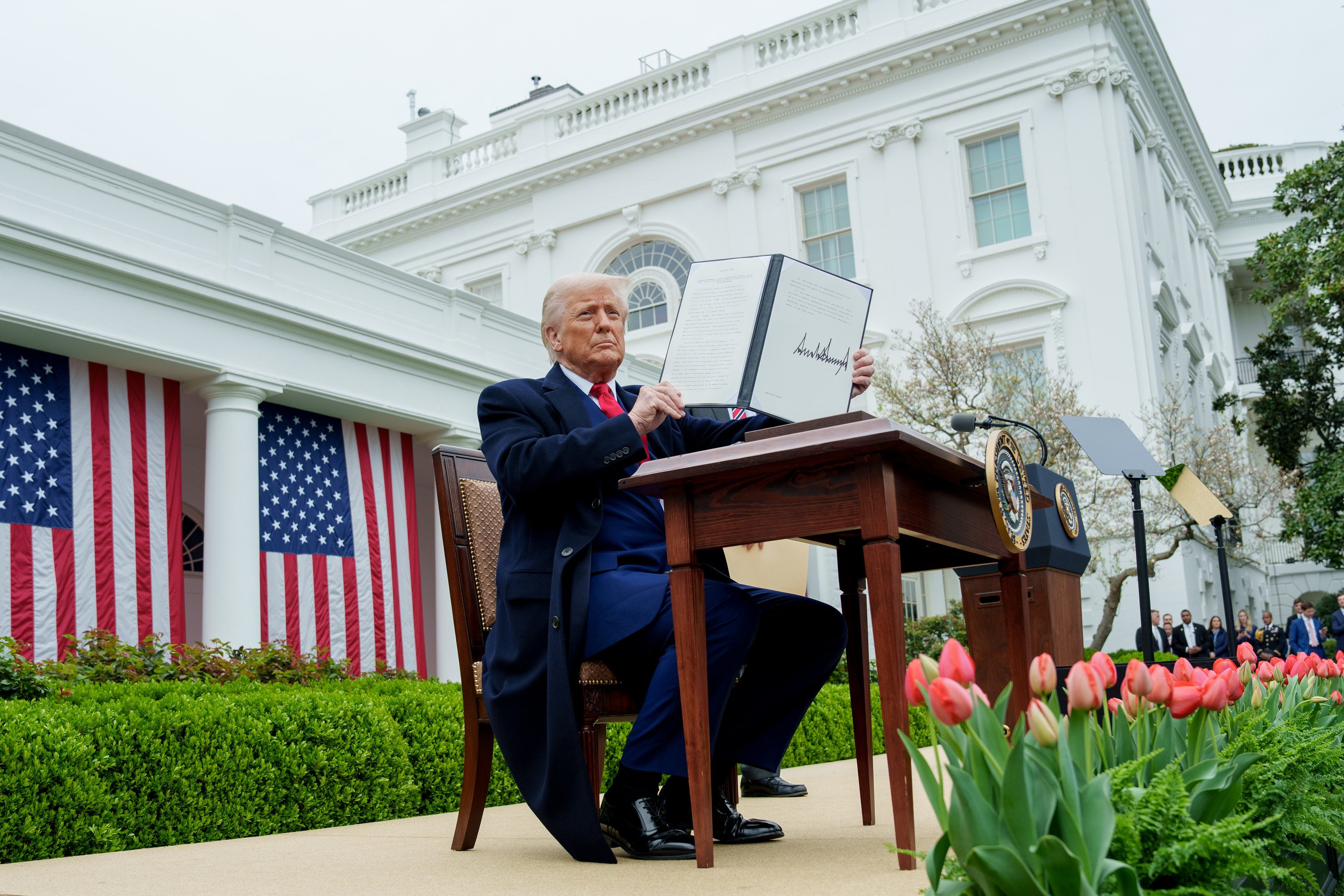Saudi Crown Prince Facing Lawsuits in D.C.
A preliminary analysis of the legal questions likely to be raised in the lawsuits against the Saudi crown prince.

Published by The Lawfare Institute
in Cooperation With

Saudi Crown Prince Mohammed bin Salman—widely known by his initials, MBS—is facing two lawsuits in the U.S. District Court for the District of Columbia over allegations of torture, detention and extrajudicial killing.
One suit was filed in August by former Saudi senior intelligence official Dr. Saad al-Jabri, who left Saudi Arabia in 2017, when MBS ousted al-Jabri’s boss, former Crown Prince Mohammed bin Nayef. Al-Jabri alleges that MBS has detained al-Jabri’s children, sent covert agents into the United States to surveil and harass al-Jabri and his family, and ordered a hit squad to assassinate al-Jabri in Canada (the attempt was unsuccessful).
The other suit was filed on Oct. 20 in the same court. Hatice Cengiz, the fiancée of Jamal Khashoggi, the Washington Post journalist assassinated by Saudi operatives in 2018, alleges that the crown prince ordered Khashoggi’s killing and dismemberment. The suit, filed with co-plaintiff Democracy for the Arab World Now (DAWN), a nonprofit founded by Khashoggi, names more than two dozen co-conspirators.
Al-Jabri and Cengiz are both suing under the Torture Victim Protection Act of 1991. Cengiz is also alleging violations of the Alien Tort Statute. The statutes have previously been used to hold foreign officials accountable for harms that occurred abroad, as in Filartiga v. Pena-Irala, Kadic v. Karadzic and Xuncax v. Gramajo.
The suits raise a number of legal questions that the district court may have to resolve.
Is the crown prince immune from suit?
Foreign sovereign immunity is meant to protect foreign leaders from being subjected to laws that are not their own. The idea of foreign sovereign immunity is ancient; it is meant to ensure the efficient conduct of diplomacy, to respect the principle of comity (the legitimacy of other states’ sovereign acts), and to assuage concerns over reciprocity (the fear of one’s own officials being brought up on charges in foreign courts).
In the United States, the practice of sovereign immunity, developed in the early 19th century, was originally governed by State Department recommendations, which were informed by international custom. Prior to 1952, the State Department generally requested immunity “in all actions against friendly sovereigns.” See Samantar. Then, in 1952, the “Tate Letter,” a missive from Acting State Legal Adviser Jack B. Tate to Acting Attorney General Philip Perlman prompted the adoption of a “restrictive theory” of sovereign immunity. This theory extended immunity only to a state’s public acts and not its commercial ones. But as former Legal Adviser of the State Department Harold Koh has noted, the informal and sometimes inconsistent State Department procedures that followed the Tate Letter led to confusion in the courts, and the new process ultimately brought considerable political pressure on the State Department from actors abroad.
Partly to ameliorate these issues, Congress passed the Foreign Sovereign Immunities Act of 1976 (FSIA), which defined immunity for foreign states in U.S. courts. The FSIA covers acts done by a state itself, its “political subdivision,” or its “agency or instrumentality.” For instance, in Saudi Arabia v. Nelson, the court declined to adjudicate abuses of power by the Saudi police under the FSIA, deeming the police conduct a “foreign state’s exercise” of a “peculiarly sovereign” power.
But the FSIA did not explicitly address immunity for foreign officials. And in Samantar v. Yousuf (2010), a case brought against former Somalian Prime Minister Mohamed Ali Samantar by Somalian citizens who had suffered detention, torture, and extrajudicial killing at his commands, the Supreme Court held that the FSIA covers only foreign states, not individual officials sued in their personal capacity. In other words, a suit against an individual official does not automatically entail a suit against a sovereign state (though that objection may be raised where it applies). As a result, foreign official immunity post-Samantar is, as in the pre-FSIA days, determined by the executive branch or, where the executive branch is silent, by the courts.
All this is to say that the Saudi crown prince is not automatically immune from suit. Briefs have not yet been filed in the case, so none of the possible arguments that follow has been made in court. But it is likely that, to avoid adjudication on the merits of the cases against him, MBS may try to claim a type of individual immunity.
One type is head-of-state immunity, which attaches only to the individual recognized by the United States as the formal leader of the country. MBS, though he manages many of the sovereign functions of Saudi Arabia, is not the Saudi head of state. The recognized leader of the country is his father, King Salman. Therefore, the crown prince cannot assert head-of-state immunity.
As crown prince, deputy prime minister, and minister of defense of Saudi Arabia, MBS could instead assert foreign official immunity. There are two sorts of foreign official immunity under international law: status-based immunity and conduct-based immunity.
Status-based immunity for foreign officials is a blanket immunity that attaches to the highest sitting officials of a given country, usually the head of state, head of government and foreign minister (“the troika”). (Diplomats, too, have status-based immunity, but they are covered by a separate legal regime.) Status-based immunity applies to both public and private conduct of these officials only while they are in office. After leaving office, however, these officials can be held liable for crimes that were committed outside their official duties. See In re Estate of Marcos and Jimenez v. Aristeguieta. Given his de facto leadership in key areas of Saudi policy and frequent representations of Saudi Arabia abroad, MBS might assert quasi head-of-government status.
MBS also could claim conduct-based immunity, which attaches only to the public acts of foreign officials. Conduct-based immunity for foreign officials applies to officials outside the “troika” and diplomatic corps, and it is certainly possible that it could apply to some of the crown prince’s acts. But acts done for private gain, or outside the scope of the actor’s official duties, are not covered. To assert this type of immunity in these cases, MBS’s attorneys might need to assume, for the sake of argument, that although the crown prince did order actions against the plaintiffs, he gave the orders in his official capacity in the interest of the sovereign and is thus protected from suit. (The crown prince has claimed that he did not order or have prior knowledge of Khashoggi’s killing.)
Who will decide whether or not MBS is immune?
The executive branch still plays a large role in determining whether a foreign official is entitled to immunity, both in articulating general principles of immunity and in weighing the specific factors present in individual cases. Suggestions of immunity are filed in a two-step process: First, a foreign actor requests a statement from the executive branch. Next, the State Department either grants the request and files a suggestion of immunity with the court, or refuses to make the suggestion and allows the court to decide the question without input from the executive branch.
Courts’ deference to executive suggestions of immunity stems from a recognition of the executive’s exclusive control over and superior expertise in the implementation of foreign policy. But whether executive branch suggestions of immunity are absolutely binding or merely weighty is an open question.
Some have argued that executive branch determinations about status-based immunity are constitutionally reserved to the executive branch. Status-based immunity determinations involve an inherently political assessment of the privileges to be accorded a specific office in a foreign government. Thus the executive branch’s “suggestion” is binding on the courts. But the same is not true of conduct-based immunity determinations. Making a decision about whether a person is entitled to conduct-based immunity requires applying the law to specific acts—a task for which the courts are uniquely well suited. Under this theory, in conduct-based immunity cases, the executive branch’s recommendation is merely suggestive, and courts are not bound by State Department guidance. That said, the courts’ long-standing practice is to defer to the State Department’s assessment.
While unlikely to intervene at the trial court level, the federal government might well make an argument for the crown prince’s immunity on appeal. If the executive branch is silent, the district court will examine for itself the possibility of immunity, using established principles of foreign official immunity under federal common law and customary international law. See, for example, Miango v. Democratic Republic of Congo (D.D.C. 2020).
Will the nature of the crown prince’s actions preclude immunity?
William Dodge argues, citing the Torture Victim Protection Act, that jus cogens violations—acts that contravene the fundamental norms of international law—“cannot be considered official acts for the purposes of conduct-based immunity.” Torture was excluded from consideration as an official act by the U.S. Court of Appeals for the Ninth Circuit in Hilao v. Estate of Marcos (1996). And the U.S. Court of Appeals for the Seventh Circuit in Enahoro v. Abubakar (2005) found that “officials receive no immunity for acts that violate international jus cogens human rights norms,” because those acts are not “legally authorized” nor “taken within any official mandate.” In that case, torture and murder were both excluded from consideration as official acts.
Others posit that jus cogens violations create an exception to conduct-based immunity. This would mean that, although the violations are public acts, the foreign official is still liable. Either way, many academics and government practitioners (though not necessarily courts) agree that conduct-based immunity does not apply to fundamental international norm violations, such as slavery, genocide, extrajudicial killing and torture.
Status-based immunity, once it has attached to an individual, does not usually allow for plaintiffs to seek exceptions, even for gross human rights abuses, while the individual is still in office. But, once individuals have left office, their conduct is subject to the standards described above.
These lawsuits allege clear jus cogens violations. U.S. foreign relations law includes prohibitions against torture, murder, disappearance of individuals and prolonged arbitrary detention as jus cogens norms (see Restatement (Third) of the Foreign Relations Law of the United States § 702 Comment n).
If the Ninth Circuit’s line of reasoning in Hilao is followed by the D.C. district court here, immunity would not attach to MBS’s alleged involvement in those crimes, as they could not be considered official acts. (In any case, it would be difficult to make the argument that they were official acts: The Saudi state has officially condemned the assassination of Jamal Khashoggi by sentencing eight men to prison for the crime. Additionally, in order to assert that the group of hitmen known as the Tiger Squad or the Saudi Rapid Intervention Group is not the crown prince’s “personal mercenary group,” as the al-Jabri complaint asserts, MBS’s attorneys might have to acknowledge an official policy or pattern of violently repressing dissent.) Furthermore, as Curtis Bradley has written for Lawfare, because the Torture Victim Protection Act requires the defendant to have acted with the “actual or apparent authority” of a foreign government, and thereby expressly imposes liability for governmental conduct, the act can be read to exclude the possibility of conduct-based immunity for foreign officials.
But the state of law in immunity is still in flux, and therefore the outcome is difficult to predict. It will depend in large part on how the D.C. district court interprets the law.
Are the Alien Tort Statute and Torture Victim Protection Act likely to apply?
The Khashoggi complaint states that its claims arise under the Alien Tort Statute (ATS). The ATS grants federal courts original jurisdiction over “any civil action by an alien for a tort only, committed in violation of the law of nations or a treaty of the United States.” It has been used in the past to address harms committed by a foreigner against a foreigner on foreign soil. See Filartiga. But recent Supreme Court decisions have eroded the ATS’s scope. See Kiobel v. Royal Dutch Petroleum Co. and Jesner v. Arab Bank. In particular, the court has backed away from adjudicating claims that involve conduct and harms abroad.
The court has formulated a “presumption against extraterritoriality” under the ATS. To overcome that presumption, the harms in question must “touch and concern” the United States. See Kiobel. In these cases, the most egregious alleged harms—abduction, torture and extrajudicial killing—occurred abroad, but the course of conduct that led to those harms may have happened partly on U.S. soil. The complaint in the Khashoggi case claims that Saudi officials in the Saudi embassy in Washington, D.C. defrauded Khashoggi into visiting the Saudi embassy in Istanbul, where he was killed.
A case just argued before the Supreme Court, Nestlé v. Doe, may shed light on the ATS’s applicability to Khashoggi’s case. The court’s “touch and concern” analysis in Nestlé may emphasize the elements of conduct related to the cause of action that occur on U.S. soil. (In oral arguments, several justices asked about the significance of conduct performed within U.S. territories. The representative for the government indicated that the touch and concern analysis in part “depends on how much conduct happens in the United States.”) As applied to this case, such a decision could reiterate to lower courts that the alleged conduct in the D.C. Saudi embassy, if proved, significantly adds to the force with which the cause of action touches and concerns the United States, making it more likely to overcome the presumption against extraterritoriality.
Both the Khashoggi and the al-Jabri complaints state claims under the Torture Victim Protection Act (TVPA). The TVPA covers “extrajudicial killing” and attempted extrajudicial killing, as well as torture, including “mental pain and suffering.” The central alleged crimes at issue—torture and extrajudicial killing, in the Khashoggi case; and torture and attempted extrajudicial killing, in the al-Jabri case—therefore satisfy the TVPA’s requirements for the type of harm committed.
To qualify under the TVPA the violative conduct must be done by an individual acting “under actual or apparent authority, or color of law, of any foreign nation.” The crown prince, if he did order the alleged conduct, would have been acting under the apparent authority of Saudi Arabia.
But the TVPA kicks in only after the plaintiff has “exhausted adequate and available remedies in the place in which the conduct giving rise to the claim occurred.” This requirement may pose a problem in both cases. The court may be expected to recognize that neither party could safely return to Saudi Arabia to litigate the case, nor could they receive a fair trial there. But it is possible that the court will determine Turkey (where Khashoggi was murdered) and Canada (where al-Jabri was targeted for attempted murder) are the next best places for a suit. The TVPA’s language is vague as to “conduct giving rise to the claim” and thus leaves the proper venue ambiguous.
Can process be served via WhatsApp?
The al-Jabri case comes with an additional twist. Unable to reach MBS either by personal service on U.S. soil or by traditional methods of service at his places of residence in Saudi Arabia, the plaintiff has attempted to serve him via WhatsApp, the popular international mobile messaging app. According to filings of Sept. 22, the plaintiff alleges that MBS has indeed been served through the app given the read receipt on file. (MBS is reportedly a frequent WhatsApp user. He is alleged to have used it to contact one of the plaintiffs, al-Jabri, and a U.N. report recently found that he used WhatsApp to hack into the phone of Jeff Bezos, the Amazon founder and CEO.)
The legality of serving process via WhatsApp will depend in part on whether it is deemed “reasonably calculated to give actual notice,” the standard recently used in Republic of Sudan v. Harrison. And the sufficiency of such service will depend on the court’s view of “read receipts” on WhatsApp as proof of actual notice. On WhatsApp, a received message is accompanied by a single check mark, while a read message gets an additional check. The screenshots filed with the court showed two check marks next to all of the messages purporting to provide service of process, indicating that the user received and read them. The identity of the user, however, cannot be ascertained from the app, and the crown prince may assert that someone else manages his account.
Beth van Schaack of Stanford Law School has noted that the D.C. service of process statute does not explicitly include electronic service. Still, the statute’s last section gives judges the discretion to authorize additional means for serving process. And judges have allowed electronic service before. In July 2020, the Supreme Court of India allowed the service of notices, summons, and pleading documents through WhatsApp and similar messaging services. The Texas Supreme Court recently ruled that service of process through social media and email do not necessarily violate recipients’ due process rights. In 2019, U.S. Magistrate Judge Sarah Netburn approved the use of WhatsApp, as well as iMessage and Twitter, to attempt personal service. And in 2016, Judge Laurel Beeler of the U.S. District Court for the Northern District of California held in part that international service of process via Twitter was “reasonably calculated to give notice” and “not prohibited by international agreement.”
MBS’s response to al-Jabri’s WhatsApp summons is due by Dec. 7.
Correction: An earlier version of this piece incorrectly identified Hatice Cengiz as the sole plaintiff in the lawsuit filed on Oct. 20. Cengiz is a co-plaintiff with DAWN, a nonprofit organization founded by Khashoggi.





